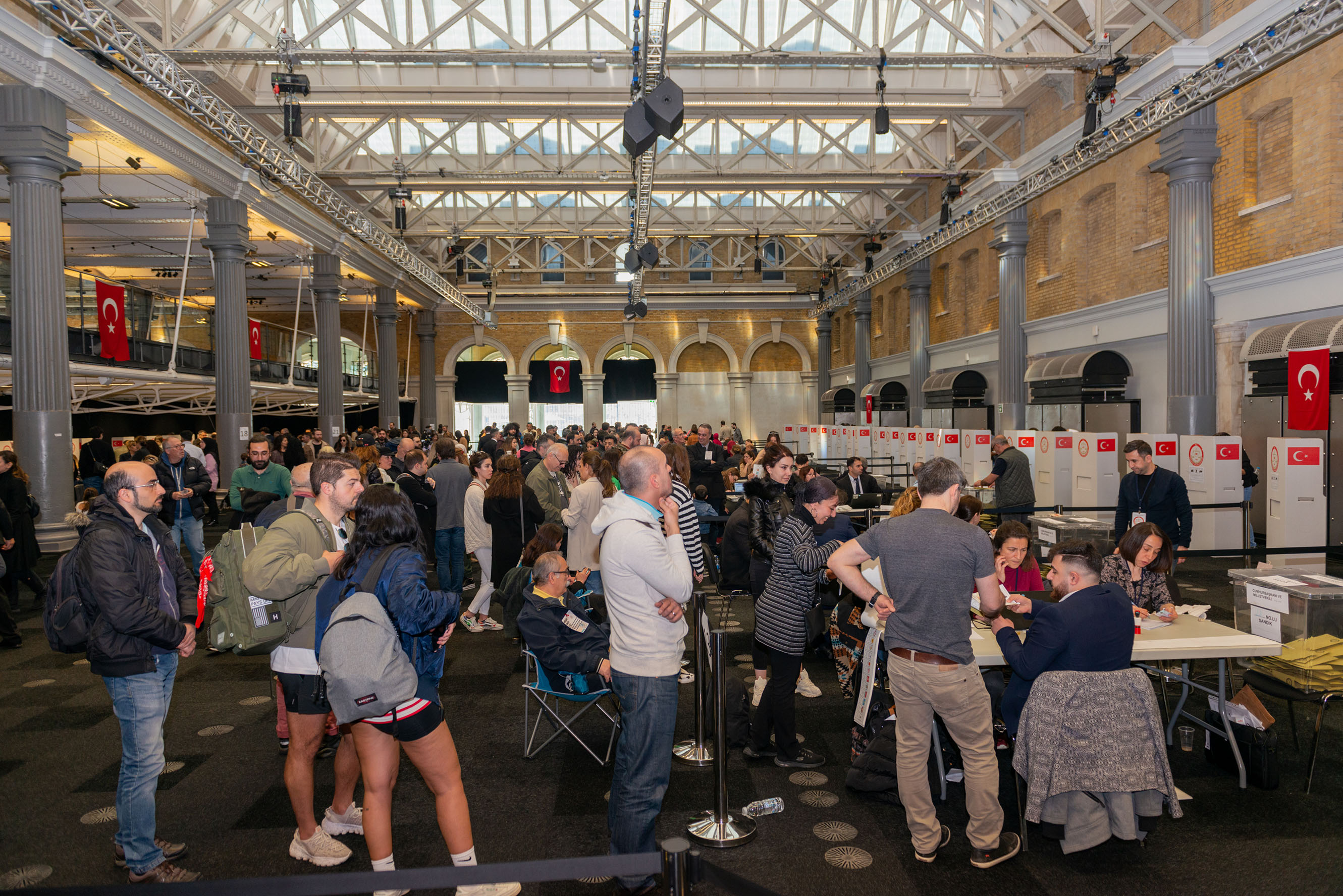There has been a large turnout of Turkish citizens living in Britain casting their ballots in Turkiye’s Presidential and Parliamentary Elections. The two big elections will take place in Turkiye on Sunday 14 May.
The Turkish government has facilitated overseas arrangements to allow Turkish citizens living in 73 different countries to also participate in the crucial vote.
Officials predict the overall number of overseas Turkish voters in 2023 will be well above the 50% average turnout in the 2018 elections.
Ballot boxes for UK Turkish voters double in 5 years
There were big queues when polling stations opened at 9am on Saturday, 29 April, in four different locations in the UK – London, Leicester, Manchester and Edinburgh. Those in London, Manchester and Edinburgh will remain open for nine days, until Sunday, 7 May.
Voting in London is taking place at Old Billingsgate, near London Bridge and is open daily from 9am to 9pm.
Among those casting their votes at the Old Billingsgate polling station over the weekend was the new Turkish Ambassador Koray Ertaş and his wife Sevcan, as well as Utku Atahan, the Turkish Consul General in London.
Mr Atahan, whose team is overseeing the UK polling operation, told TRT World that voting had been “very smooth without any serious problems”.
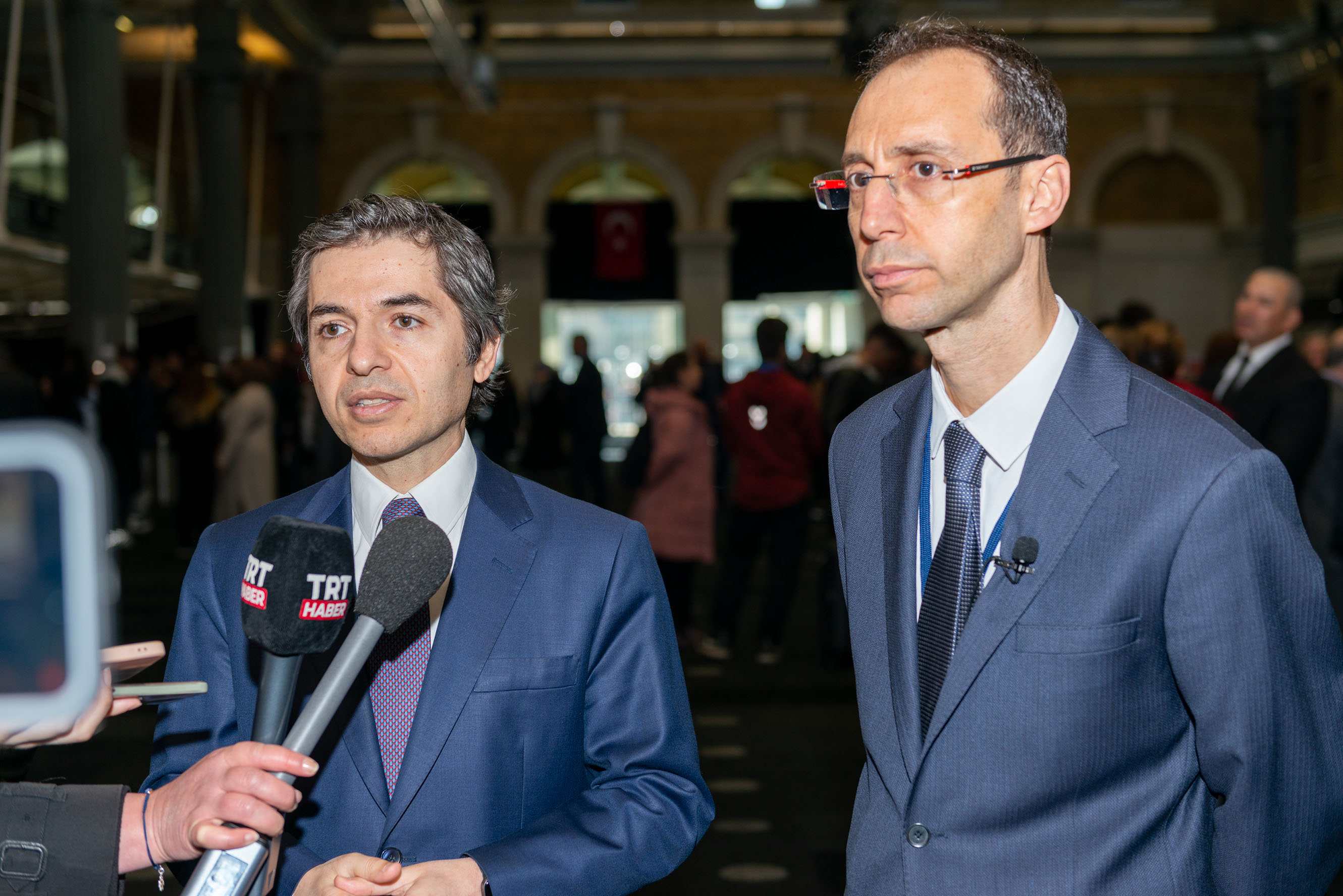
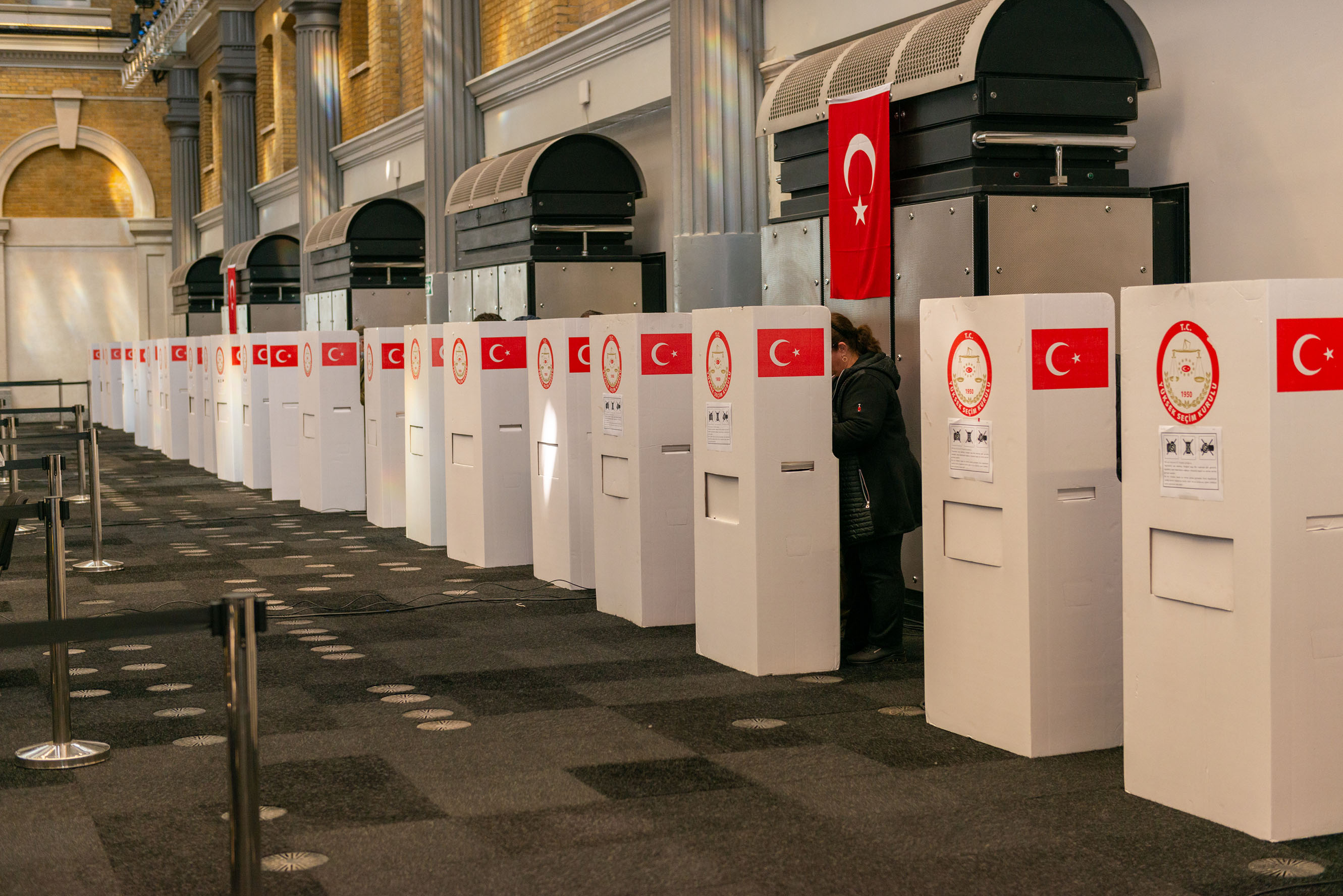
The senior diplomat said the UK had “a total of 243 ballot boxes [for the 2023 Turkish elections], of which 200 are in London”, which offered a strong indication of the big concentration of Turkish citizens living in and around the British capital.
“Compared to 125 ballot boxes [in London in 2018] it’s increased to 200 boxes,” added Mr Atahan said, with the nearly double number of boxes reflecting the growing size of the local Turkish population.
3.5 million overseas Turkish voters
Mr Atahan said that the UK, like other overseas territories, is likely to exceed the 50% turnout of previous elections.
There are an estimated 6.5 million Turkish citizens living abroad, with just under 3.5 million of them registered to vote in Turkish elections. Of these, 277,646 are first-time voters.
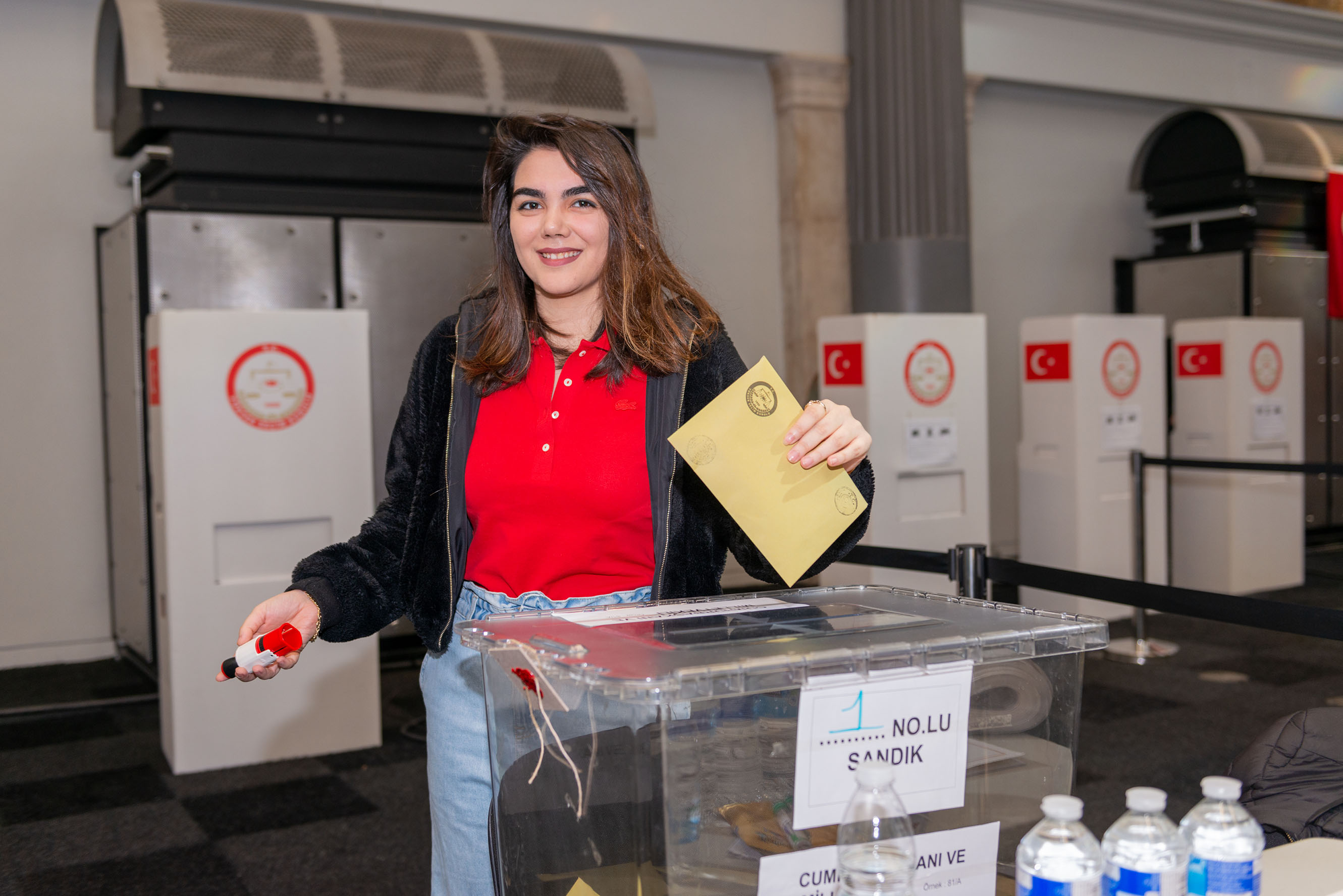

The UK has the seventh largest Turkish number of voters, 127,281. Germany has the highest number of Turkish voters – 1.5 million – followed by France (397K), Netherlands (287K), Belgium (153K), TRNC (140K), and the USA (134K).
Much is at stake in the 2023 elections, as the incumbent, President Recep Tayyip Erdoğan, and his ruling Justice and Development Party (AKP) face their stiffest political challenge yet. After two decades in power, the AKP government face large discontent from many segments of Turkish society.
President Erdoğan facing strongest political challenge yet
In recent years, the value of the Turkish lira has plummeted while inflation has been soaring, leaving many Turks worse off.
There are concerns about the rising costs of caring for over 4 million Syrian refugees, and also about the quality of Turkiye’s democracy, with both the Turkish press and judiciary under heavy AKP influence.
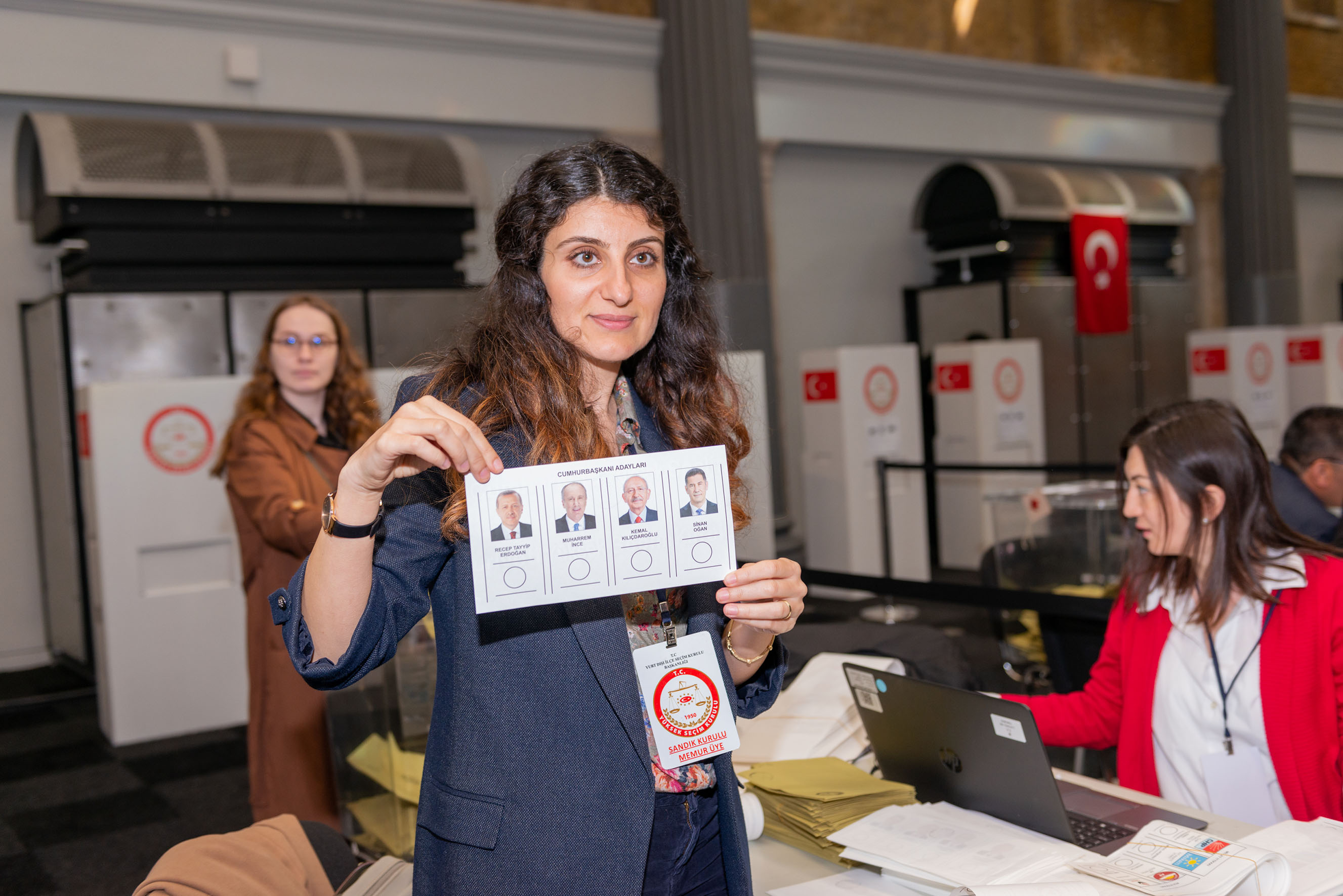
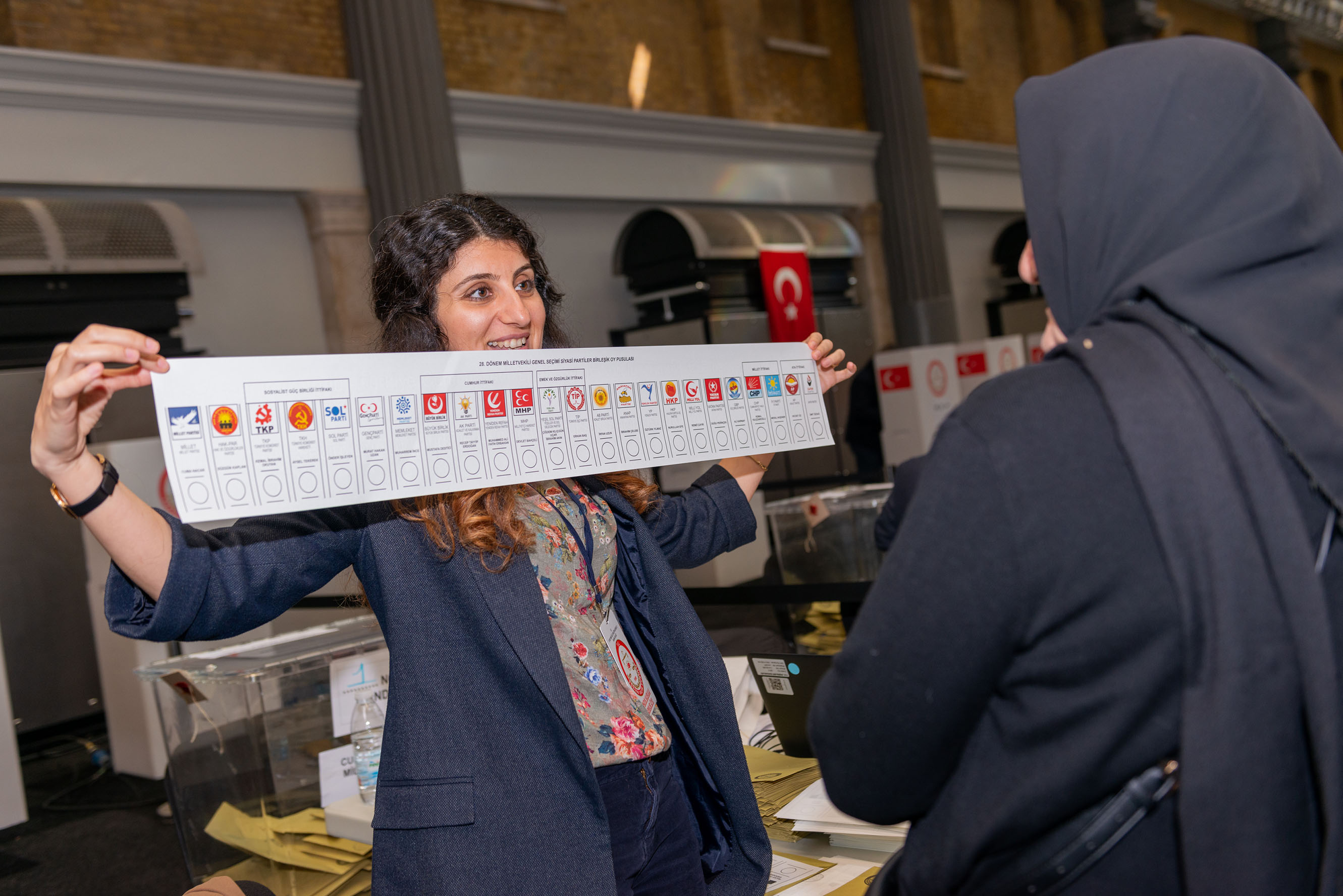
The recent devastating Turkish earthquake, which killed over 50,000 people and saw thousands of buildings collapse or suffer extensive damage leaving millions displaced, has also angered the electorate. Many criticised the slow response of the government to the disaster, while others point to, at best, inadequate enforcement by government officials of building regulations that meant few were able to withstand the impact of the powerful quake.
President Erdoğan retains a large support base among the electorate and polls show the opposition has not managed to turn the disaffection to their advantage.
The main challenger, Kemal Kılıçdaroğlu – the leader of the Turkish People’s Party (CHP) and unity candidate for six political parties – is only marginally ahead in the polls, but lacks enough support to win in the first round.
Any run-off would take place a fortnight after the first election, with the diaspora again able to cast their votes.


